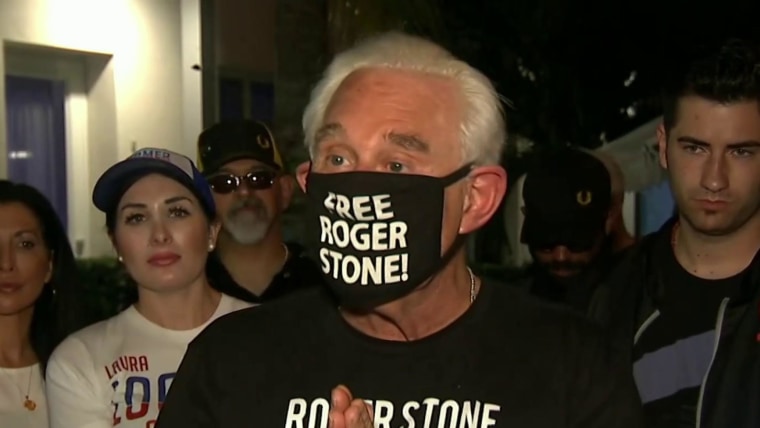WASHINGTON — The Justice Department’s Office of the Inspector General has begun investigating the circumstances surrounding the sentencing recommendation for Roger Stone, a longtime friend of President Donald Trump, according to two sources familiar with the matter.
The investigation is focused on events in February, according to the two sources who spoke on the condition of anonymity, when prosecutors for Stone have said they were told to seek a lighter sentence for Stone than they had previously considered.
Attorney General William Barr ultimately intervened to override the prosecutors’ recommendation of seven to nine years and ask for a lighter sentence. All four prosecutors quit the case as a result.
One of those prosecutors, Aaron Zelinsky, testified before Congress in June that he was told by the office of the U.S. Attorney for the District of Columbia to recommend a lighter sentence for Stone than he otherwise would have because of Stone’s close personal relationship with Trump.
Zelinsky said the U.S. Attorney, Timothy Shea, was “receiving heavy pressure from the highest levels of the Department of Justice to cut Stone a break, and that the U.S. Attorney’s sentencing instructions to us were based on political considerations.”
The career prosecutors had recommended the longer sentence in accordance with a 2017 policy put forth by Trump‘s first attorney general, Jeff Sessions, which requires prosecutors to seek the maximum sentence called for under the guidelines unless there are significant mitigating circumstances.
One source familiar with the matter said comments made by Zelinsky during his testimony triggered the Inspector General’s Office to open an investigation. It is not known how far the Office of the Inspector General has proceeded in its investigation, who they have interviewed or whether they have found any evidence of wrongdoing.
A federal jury convicted Stone of seven felonies after a trial in which prosecutors accused him of lying to Congress and intimidating a witness. They said he was trying to protect President Trump by misleading a Congressional investigation into ties between Russia and Trump’s 2016 presidential campaign.
Zelinsky, who prosecuted the Stone case as part of his work with special counsel Robert Mueller, He said the U.S. Attorney, Timothy Shea was “receiving heavy pressure from the highest levels of the Department of Justice to cut Stone a break, and that the U.S. Attorney’s sentencing instructions to us were based on political considerations.”
A spokesperson for the Drug Enforcement Administration, which Shea now runs, declined to comment. The U.S. Attorney’s Office for the District of Columbia did not respond to a request for comment. A spokeswoman for the inspector general said the office does not confirm or deny the existence of investigations.
On July 10, President Trump commuted Stone’s sentence to ensure he would not serve the 40-month prison term handed down by the court.
Testifying before the House Judiciary Committee on July 28, Barr defended his involvement in the sentencing. He said that Stone’s age, 67, made it unfair for him to be sentenced for so long for a non-violent crime.
“I agree the president’s friends don’t deserve special breaks, but they also don’t deserve to be treated more harshly than other people,” Barr said.
The Justice Department’s Office of Professional Responsibility began an inquiry into what transpired around the time of Stone’s sentencing, including whether there were leaks to the media, according to two sources familiar with the matter. But the recent involvement of the department’s inspector general carries additional weight because the inspector general is independent, required to report to Congress and must publicly post findings of misconduct. If warranted, the inspector general can refer a case to a U.S. Attorney’s Office for prosecution.













